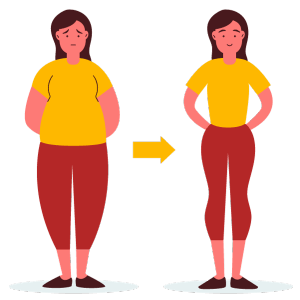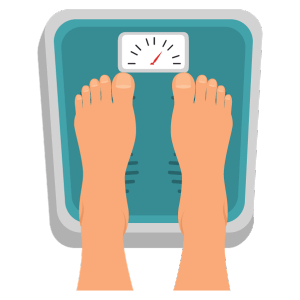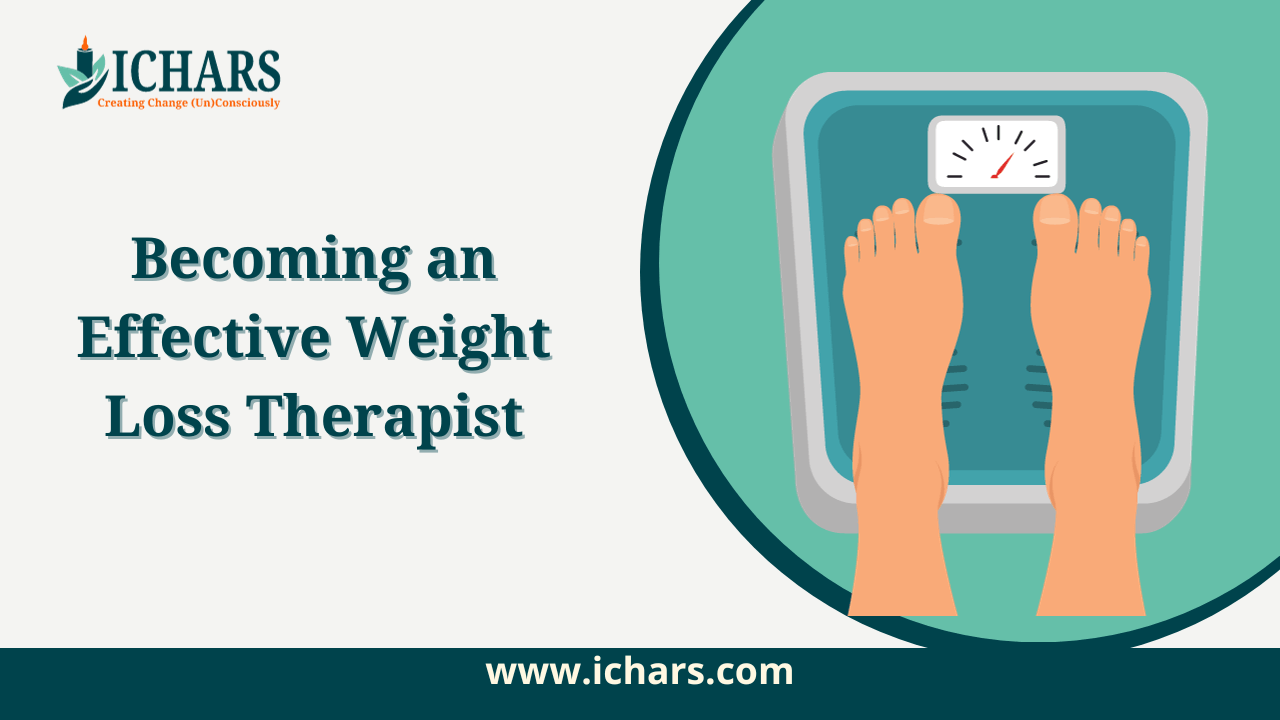
According to ICMR-INDIAB study 2015, globally, more than 1.9 billion adults are overweight and 650 million are obese. Approximately 2.8 million deaths are reported as a result of being overweight or obese.
Due to the consumption of energy dense food (i.e. unhealthy food habits), sedentary lifestyle, lack of health care services and financial support, the developing countries are facing high risk of obesity and its adverse consequences (i.e. diabetes, ischemic heart disease, etc). (PubMed, 2018)
A cursory glance around a common public place will easily verify that although people are becoming more and more conscious about their health and fitness, however, the lifestyle factors mentioned in the report quoted above, are making it considerably difficult to stay within the healthy weight bracket (of BMI range 18.5 to 24.9).
Case Study on Weight Loss
Background
Let me share the example of my neighbour Ria, who I witnessed putting efforts to lose weight for eons. She kept trying different diets, exercise regimes, weight loss pills and what not, but all in vain.
A close look into her lifestyle pattern indicates a mental state where she tries something, but soon gets bored because of the slow results, so switches to something else. This creates a state where it becomes increasingly difficult to follow a healthy lifestyle consistently. Naturally work life balance, relationships, sleep, self confidence, all get impacted.
Effective weight loss involves achieving sustainable reduction in weight through balanced nutrition, regular physical activity, and positive lifestyle changes. It prioritizes health and well-being over quick fixes, emphasizing wholesome foods, mindful eating, and behavioural modifications.
Successful weight loss integrates realistic goals, supportive networks, and professional guidance, aiming to improve overall health, energy levels, and quality of life while reducing the risk of obesity-related health issues.
Interestingly, Ria understood this and consulted a weight loss therapist.
Who is a Weight Loss Therapist?

A weight loss therapist is a trained and qualified professional with an expertise in psychological, emotional, and behavioural aspects of weight loss.
The Process
They worked together to address underlying factors contributing to weight challenges, such as emotional eating, self-esteem issues, and unhealthy habits.
Advanced therapeutic techniques from cognitive Hypnotic Psychotherapy were applied to create positive lifestyle changes, set realistic goals and developing a healthier relationship with food and exercise.
She was given personalized support, encouragement, and guidance, promoting overall well-being and empowering her to achieve the weight loss objectives.
Ria’s case clearly shows that people can keep trying different options like diet, exercise, medication and what not, but till the time the mental hindrances are not removed, any kind of weight loss regimen always has a high probability of relapse.
Here comes the role of weight loss therapist – a tribe that seamlessly helps their clients in building a positive relationship with food and addressing any emotional challenges, thereby leading to sustainable lifestyle changes and healthier habits.
Areas of Work
The areas a weight loss therapist works upon could be one or many of the following:
- Emotional Eating: Emotional eating is a common response to stress, sadness, boredom, or even happiness. During emotionally challenging times, some individuals turn to food for comfort, leading to overeating or consuming unhealthy, calorie-dense foods. This can hinder weight loss efforts and contribute to weight gain.
- Food Choices: Emotions can influence the types of foods we choose to eat. For example, when feeling stressed, some people might reach for sugary or high-fat comfort foods, which can be calorie-rich and contribute to weight gain.
- Lack of Motivation: Emotions like frustration, low self-esteem, or disappointment can lead to a lack of motivation to maintain healthy habits, like regular exercise or following a balanced diet.
- Self-Sabotage: Some individuals may unintentionally self-sabotage their weight loss efforts due to negative emotions or self-doubt. This could involve skipping workouts, not adhering to dietary plans, or setting unrealistic goals.
- Emotional Triggers: Certain emotions or situations may trigger unhealthy eating patterns or disordered eating behaviours, such as binge eating or emotional binging, which can interfere with weight loss progress.
- Stress Hormones: Chronic stress can lead to the release of stress hormones like cortisol, which may promote fat storage, particularly around the abdominal area.
The Indian weight management market size reached US$ 20.8 Billion in 2022. Looking forward, IMARC Group expects the market to reach US$ 37.9 Billion by 2028, exhibiting a growth rate (CAGR) of 10.6% during 2023-2028”.
No doubt people are conscious of their weight, but in the absence of the right mental state and adequate motivation, the task becomes challenging. (IMARC)
Various therapies and counselling approaches can be employed to support individuals in their weight loss journey. However, it’s essential to note that the effectiveness of each therapy may vary depending on the individual and their specific needs and circumstances.
In fact, some individuals may even benefit from a combination of different therapeutic approaches tailored to their unique situation. These therapies aim to address the emotional, psychological, and behavioural aspects of weight management.
Some of the common therapies used for weight loss include:
- Cognitive Hypnotic Coaching / Psychotherapy: is an approach where the individual is guided into a state of deep relaxation and heightened focus, known as a hypnotic trance. In this state, the individual becomes more open to suggestions and is more receptive to positive affirmations and imagery related to weight loss and healthy habits. This is a fast and easy way to work on food cravings, changing unproductive behaviour, life style changes, enhancing exercise motivation etc.
- Cognitive Behavioural Therapy (CBT): CBT is one of the most widely used therapeutic approaches for weight management. It focuses on identifying and changing negative thought patterns and behaviours related to eating and exercise. Clients learn coping strategies to deal with emotional eating, stress, and other triggers that may hinder weight loss progress.
- Mindfulness-Based Therapy: Mindfulness-based therapies, such as Mindfulness-Based Stress Reduction (MBSR) or Mindful Eating, encourage individuals to be present and non-judgmental in their eating habits. This approach helps clients develop a healthier relationship with food, recognize hunger cues, and distinguish between emotional and physical hunger.
- Dialectical Behaviour Therapy (DBT): DBT combines cognitive and behavioural techniques with mindfulness practices. It is useful for individuals who struggle with emotional regulation and impulsive eating behaviours.
- Acceptance and Commitment Therapy (ACT): ACT focuses on accepting and acknowledging emotions and thoughts without judgment while committing to behaviour changes aligned with one’s values. This therapy can be beneficial for individuals dealing with emotional eating and self-sabotage.
- Motivational Interviewing (MI): MI is a client-centred counselling style that aims to explore and strengthen a person’s motivation for change. Therapists using MI help clients identify their reasons for weight loss, enhance their confidence in making changes, and develop strategies for achieving their goals.
- Interpersonal Therapy (IPT): IPT focuses on improving interpersonal relationships and addressing emotional issues that may contribute to overeating or other unhealthy behaviours.
- Solution-Focused Brief Therapy (SFBT): SFBT is a goal-oriented approach that helps clients identify their strengths and resources to achieve weight loss goals. It focuses on solutions rather than dwelling on problems.
- Psychodynamic Therapy: Psychodynamic therapy explores unconscious thoughts and emotions that may be contributing to weight-related issues. Understanding and addressing these underlying factors can help clients make lasting changes.
- Group Therapy: Group therapy sessions can provide a supportive environment for individuals to share their experiences, challenges, and successes with weight loss. Group members can offer encouragement and accountability, fostering a sense of community.
- Health Coaching: Health coaches often use a combination of counselling techniques and motivational strategies to guide clients in setting and achieving weight loss and wellness goals.
However, it must be borne in mind that, just like in Ria’s case, these therapies work in conjunction with diet and exercise routine.
Also, no matter which mode of therapy, it is important to structure the sessions with defining the outcome, creating a complete plan to achieve the outcome, and following it up with consistency and patience. Remember, No one gains weight in a day, they won’t lose it in a day… Be patient and focused.

